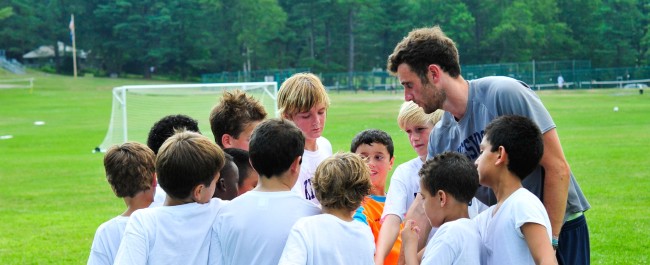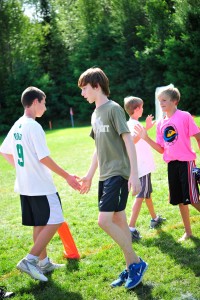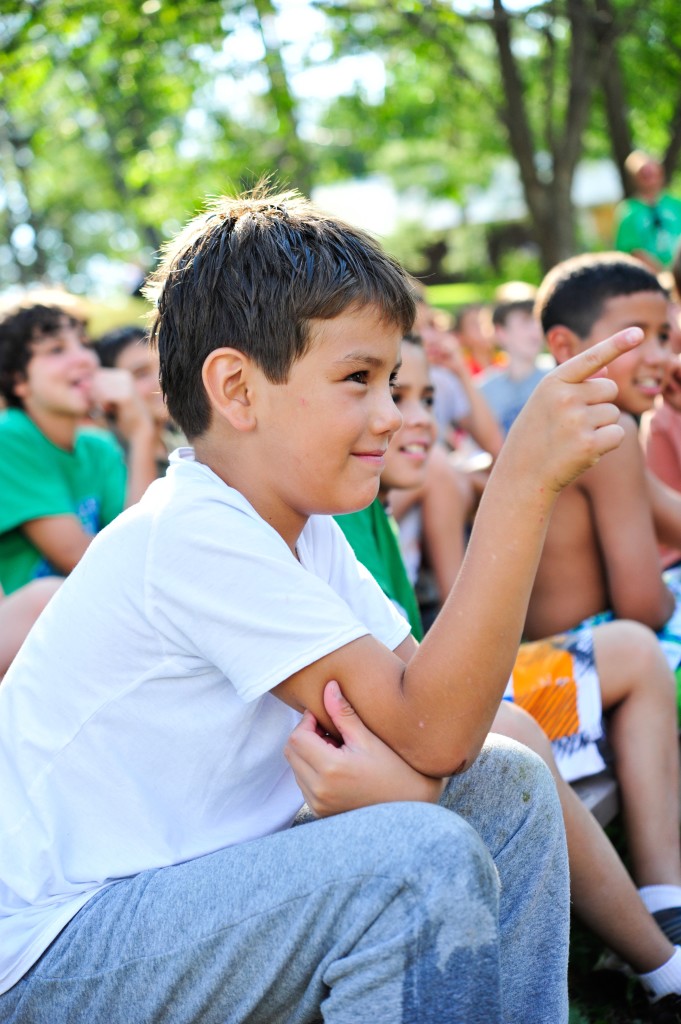“Self-Kudos” as a Teaching Tool
One of our good traditions is that counselors occasionally praise their own accomplishments in the dining room in order to draw teasing jeers from the rest of us. It goes like this: during our announcement (or “kudos”) session after the meal, the counselor, Mark, stands up and announces, “John caught my touchdown pass to win the game for Mark’s Muckrakers.” The camper, John, will get his cheers for his great play, but rather than applause, Mark gets chastised for his “self-kudos.” What the kids don’t know at first is that the camp administration has encouraged Mark to glorify himself so that the collective community could respond with taunts to the effect that “a real winner does not need to toot his own horn.”
Everyone down to the youngest camper gets the message. The next day, Mark will stand up at say something like this: “I would like to ask Devin and Justin to stand up. We Muckrakers could not stop these guys. Devin intercepted one of my passes and Justin was an offensive weapon for his team that no one could cover, even I when I tried to defend against him. Give these guys a good holler.”
There’s even a good chance that the Muckrakers won the game handily, but Mark now is showing the rest of the camp how important good sportsmanship is to the overall happiness of the community. A good winner always affects a tone of modesty. It works quite similarly when the losing coach stand up before the crowd. I remember the time when Matt went on for several minutes praising one baseball player after another – the pitcher for his great accuracy and the batter for his aggressive hitting. “I did not realize we won this game,” said this director to the person next to me. “Oh, we got clobbered,” was his reply, which made my day.




